Science & Society
Sign up for our newsletter
We summarize the week's scientific breakthroughs every Thursday.
-
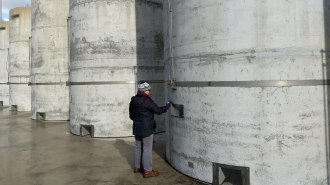 Science & Society
Science & SocietyA Supreme Court ruling on nuclear waste spotlights U.S. storage woes
Court ruling allows interim nuclear waste storage in Texas, but the U.S. still has no long-term plan for its 90,000 metric tons of spent fuel.
-
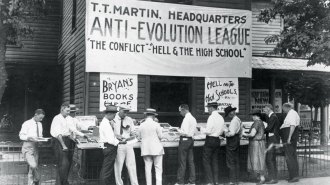 Science & Society
Science & SocietyHow attacks on evolution in classrooms have shifted over the last 100 years
Since the Scopes trial in 1925, Science News has reported on legislative attempts to undermine the teaching of evolution.
By Erin Wayman -
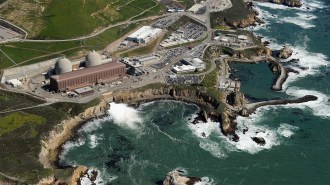 Science & Society
Science & SocietyIs nuclear energy good? A new book explores this complex question
Atomic Dreams explores nuclear energy's future in the U.S. through the history of Diablo Canyon, California's last operational nuclear power plant.
-
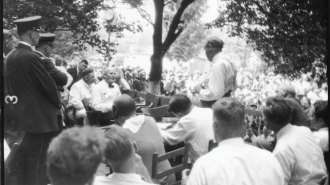 Humans
Humans100 years after the Scopes trial, science is still under attack
In 1925, John Scopes was indicted for teaching evolution. Science News looks at the forces that led to the trial and how expertise was the big loser.
-
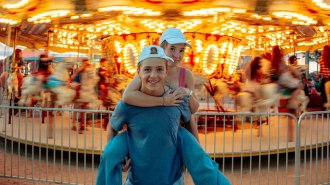 Science & Society
Science & SocietyA common parenting practice may be hindering teen development
A poll shows U.S. parents are wary of unsupervised teens, but lack of independence undermines normal development, experts say.
By Sujata Gupta -
 Humans
HumansFDA cuts imperil food safety, but not how you might think
Layoffs at the FDA, USDA and CDC could erode the U.S. food safety system. Experts aren’t so worried about milk or chicken today; they’re concerned about the future.
By Meghan Rosen -
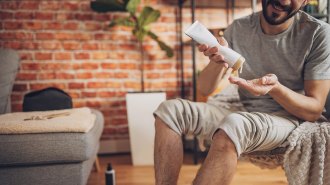 Chemistry
ChemistryLotions and perfumes affect the air near our skin
The personal care products suppress reactions between skin oils and ozone. It's not clear how, or if, this chemistry change might impact human health.
By Skyler Ware -
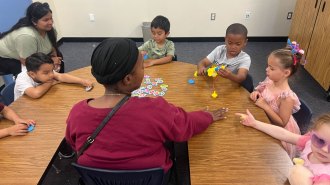 Science & Society
Science & SocietyStudents’ mental health imperiled by $1 billion cuts to school funding
The Trump administration is cutting $1 billion in grants that support student mental health. That has educators worried.
By Sujata Gupta -
 Health & Medicine
Health & MedicinePersonalized gene editing saved a baby, but the tech’s future is uncertain
The personalized CRISPR treatment could be the future of gene therapy, but hurdles remain before everyone has access.
-
 Science & Society
Science & SocietyTrump’s ‘Golden Dome’ plan has a major obstacle: Physics
Scientists suggest the missile defense plan will face big hurdles, especially given its projected timeline and cost.
-
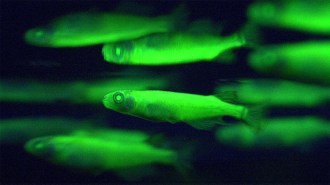 Science & Society
Science & SocietySome science seems silly, but it’s still worthwhile
The Salmon Cannon and the Levitating Frog contends that curiosity-driven research helps us understand the world and could lead to unexpected benefits.
By Karen Kwon -
 Health & Medicine
Health & MedicineFDA plan to ban fluoride supplements baffles and alarms dental experts
Fluoride supplements have been used in the United States for decades and have proven to be safe and effective for decreasing cavities.